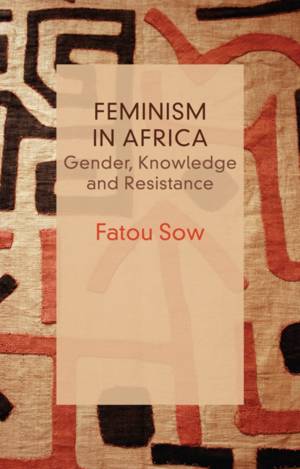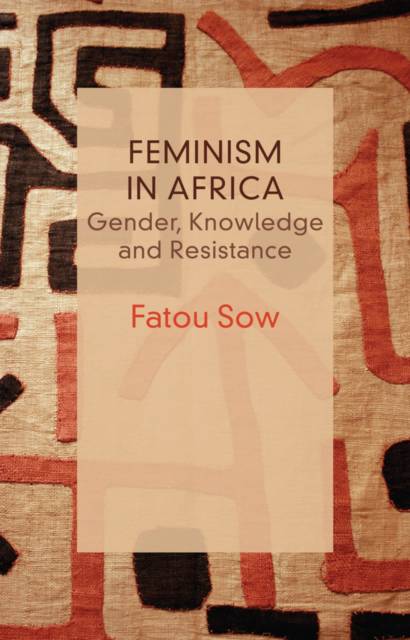
- Afhalen na 1 uur in een winkel met voorraad
- Gratis thuislevering in België vanaf € 30
- Ruim aanbod met 7 miljoen producten
- Afhalen na 1 uur in een winkel met voorraad
- Gratis thuislevering in België vanaf € 30
- Ruim aanbod met 7 miljoen producten
Zoeken
€ 86,45
+ 172 punten
Uitvoering
Omschrijving
Raising feminist concerns about the struggles of African women amid debates surrounding the socio-cultural, economic, and political future of Africa remains an immense challenge. Fatou Sow, the renowned Senegalese feminist activist and academic, illustrates here her own journey through a continuously developing global discourse. Her fundamental aim is to demonstrate the emergence and development of women's and feminist studies in Africa, highlighting its achievements, failures, and, most importantly, its complexity. She argues that it is crucial to examine the influence of the patriarchy in light of Africa's historical matriarchal systems, which form the basis of the continent's social structures. Feminist research must also evaluate how gender intersects with age, class, ethnicity, caste, race, and religious disparities, among other inequalities prevalent on the continent. As an African feminist, rooted in her African context and cultures, Sow is compelled to analyze conflicting realities, transformations, and contradictions, as well as the complex contributions that are specific to different times and places. African cultures are not just relics of struggles against a colonial West, a West defined by domination. These cultures are primarily memories and living spaces that are deconstructed and reinvented daily, at every moment, with each generation, marked by triumphs and defeats. Raising feminist concerns about the struggles of African women amid debates surrounding the socio-cultural, economic, and political future of Africa remains an immense challenge. Fatou Sow, the renowned Senegalese feminist activist and academic, illustrates here her own journey through a continuously developing global discourse. Her fundamental aim is to demonstrate the emergence and development of women's and feminist studies in Africa, highlighting its achievements, failures, and, most importantly, its complexity. She argues that it is crucial to examine the influence of the patriarchy in light of Africa's historical matriarchal systems, which form the basis of the continent's social structures. Feminist research must also evaluate how gender intersects with age, class, ethnicity, caste, race, and religious disparities, among other inequalities prevalent on the continent. As an African feminist, rooted in her African context and cultures, Sow is compelled to analyze conflicting realities, transformations, and contradictions, as well as the complex contributions that are specific to different times and places. African cultures are not just relics of struggles against a colonial West, a West defined by domination. These cultures are primarily memories and living spaces that are deconstructed and reinvented daily, at every moment, with each generation, marked by triumphs and defeats.
Specificaties
Betrokkenen
- Auteur(s):
- Vertaler(s):
- Uitgeverij:
Inhoud
- Aantal bladzijden:
- 200
- Taal:
- Engels
- Reeks:
Eigenschappen
- Productcode (EAN):
- 9781509567737
- Verschijningsdatum:
- 4/05/2026
- Uitvoering:
- Hardcover
- Formaat:
- Genaaid

Alleen bij Standaard Boekhandel
+ 172 punten op je klantenkaart van Standaard Boekhandel
Beoordelingen
We publiceren alleen reviews die voldoen aan de voorwaarden voor reviews. Bekijk onze voorwaarden voor reviews.







